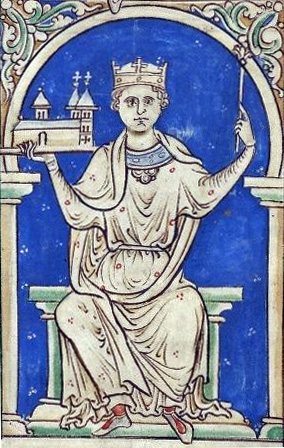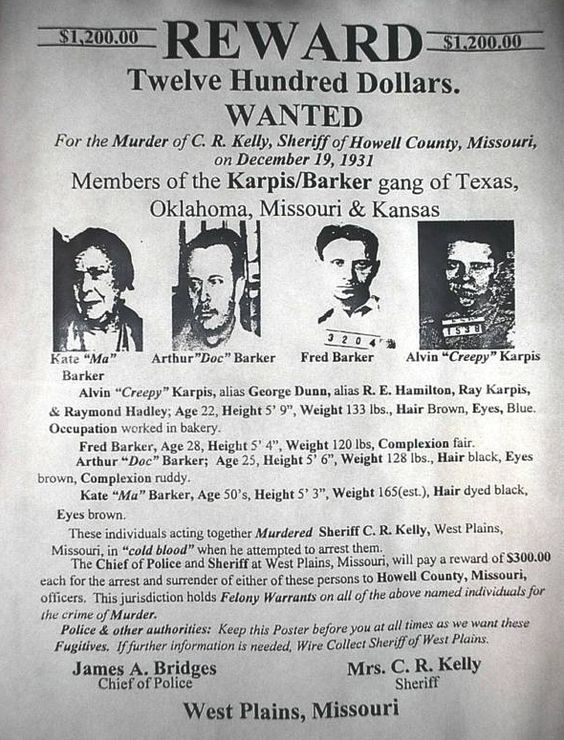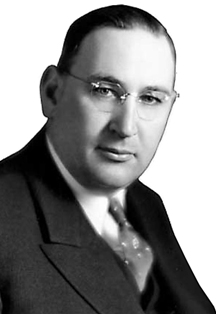Hands up who can name England’s first queen? You there: no, sorry, Elizabeth was preceded by Mary, known as Bloody Mary. But even she wasn’t the first, even if this woman is not really recognised by history as such, or at least, her claim to the throne is disputed.
 Timeline and location: Twelfth Century England, France and Germany
Name:
Timeline and location: Twelfth Century England, France and Germany
Name: Matilda
Occupation: Holy Roman Empress; Queen of England (disputed)
Nationality: English
Born: 1102
Died: 1167
Famous (or infamous) for: Holding the English throne, though unrecognised, and therefore being the first unofficial Queen of England.
Daughter to Henry I (who was not anything to do with the Henry Tudors, but was in fact the son of William the Conqueror, and so a Norman though born in England) Matilda was born into a time of turmoil and a family at war. Her father’s two brothers (therefore her uncles) Robert Curthose and William Rufus fought over William the Conqueror’s inheritance, and warred upon each other, both wanting the throne of England. Henry nominally supported his elder brother Robert, and in return for his support was made Count of Cotentin, in western Normandy. But only till it suited him. In 1088 Robert rescinded the Countship and imprisoned Henry, who had been to England to see William about those estates their father had left him in his will. Nothing doing, the younger and far more alive William had snapped, and Henry high-tailed it back across the Channel, and into the waiting arm(ie)s of his other brother. What a family, huh?
 (Now, doesn't it look like old King Henry is holding a birthday cake in one hand and a beer in the other? He's not: that's a book - probably either The Bible or How To Deal with All Your Bastards - in his right (as we look at it). The other thing? Dunno. Looks like a city. Must have been a damn big guy!)
(Now, doesn't it look like old King Henry is holding a birthday cake in one hand and a beer in the other? He's not: that's a book - probably either The Bible or How To Deal with All Your Bastards - in his right (as we look at it). The other thing? Dunno. Looks like a city. Must have been a damn big guy!)
In 1091 Henry decided fu
ck them both, and went to war against Robert and William, a war he quickly lost, but rather than pursue Henry the two brothers instead began to duke it out again, allowing their younger sibling to gain power in Normandy and mass an army. Seeing how Henry’s power was growing, and losing ground against Robert, William decided to support his kid brother and they took on Robert. In 1095 their war was broken up as God called - well, the Pope, which to people back then was the same thing - on all Christian men to defend (um) the Holy Land as the First Crusade got under way. Robert responded and Henry got pally with his other brother, fighting alongside instead of against him, but as the new century turned William fell victim to the old “hunting accident” so prevalent back then, and while it may very well have been some sort of conspiracy, at which most eminent historians (and possibly some less eminent) wag their fingers and shake their heads, the upshot (sorry) was that Henry was able to seize the throne of England while Robert was still off killing for Christ in a godless country. Score!
All of which tells us what a time Matilda was born into. She now had one uncle who had been killed, possibly by (yes, yes, eminent historians! I said possibly!) or at the behest of her father, another off fighting in Jerusalem who might very well want the crown back when he again sighted the shores of Old Blighty, and a mother who was from the royal family of England’s age-old enemy, bonny Scotland. Not only that, but daddy could most definitely not keep it in his pants, and while she only had one legitimate sibling, a brother, she had no less than twenty-two bastard brothers and sisters. Talk about an extended family! As if this wasn’t enough to deal with, she was barely seven or eight years old when the lecherous old king of Germany, another Henry, decided he’d have her as his wife. Let’s see what age he was at this time. We’re talking 1109 here, so then: born in either 1081 or 1086, this makes him at best (assuming the latter date to be the correct one) twenty-three years old. Well okay, not too old, but he sure did like them young then, didn’t he? Matilda began her voyage to Germany in 1110, her dad chuffed at the marriage proposal, as it would strengthen his weak claim on the English throne and make Germany his ally. Matilda? What had she to do with it?
So Matilda became Queen of Germany, but in fairness she was too young to be married, even for the decadent Middle Ages, so Henry had to take cold showers (and probably mistresses and servant girls) for another four years, before his new bride was ready to be porked. Henry and Matilda were married in 1114, which still only makes her about eleven, but that’s the twelfth century for you! I’m actually surprised His Majesty waited. Two years after their marriage Henry, with Matilda at his side, marched into Italy to sort out the pope, with whom he had a bone to pick, the guy having excommunicated him and all. Looks like popes just didn’t like kings named Henry! Nevertheless, excommunicating a king is one thing, taking on his army is another, and like the big girl’s blouse he was, the hilariously-named Paschal II legged it over the mountains at the approach of the Germany army, leaving his successor, Gregory VIII, to crown Henry as Holy Roman Emperor and Matilda as Holy Roman Empress.
“That’ll do for me,” grinned Henry, but unfortunately it would not. Do, that is. See, the thing is, our man Gregory VIII, then a mere papal envoy known as Maurice Bourdin, had also been excommunicated by his boss, and further, would be deposed and imprisoned by his successor, making the whole coronation thing a little shaky to say the least. Never one to let ambiguity get in the way though, both Henry and Matilda continued to use these titles, even if they may no longer have been seen as official. What happens in Rome stays in Rome, ja? Henry had to return to Germany in 1118, as the natives were getting restless, and Matilda ruled over Rome in his absence. He wasn’t to be long for his world though, suffering from cancer and succumbing to it in 1125. I guess Matilda didn’t have too many friends in the fatherland, as the local bishop convinced her to give up her claim to the throne, being childless and therefore unable to act as regent (for some reason I don’t understand) and promptly handed the crown to Henry’s enemy, Lothar of Supplinburg, who said "ta very much yer bishopness", and kicked Matilda out of Germany. She stuffed all her jewels in a bag, also cramming in two of her late husband’s favourite crowns and the Hand of St. James the Apostle (never know when you’re going to need a hand. Sorry.) and bailed for England.

Why for England? To answer that, we have to look into the event which was a catastrophic blow to the succession there. History calls it the White Ship Disaster.
Sinking the Succession: The White Ship Goes Down
No less a figure than the son of the man who had brought William the Conqueror himself to England in 1066, the White Ship was captained by Thomas Fitzstephen, and was originally offered to Henry I (remember him? Matilda’s dad?) but he had said “nah you’re all right mate, I’m sorted already, but my sprogs would sure welcome a berth.” And so his son, yet another William, as well as two of his many bastards, and a bunch of others boarded the White Ship. As did the man who would later be King Stephen, but he, seeing all the boozing going on, thought better of it and disembarked, recorded as saying “Go ahead; I’ll catch the next one. Got a few loose ends to tie up here in Normandy anyway. I’ll see you over there.”
But he wouldn’t. What was that? Oh yeah. Booze. Well, seems that drink was called for, and supplied “in abundance”, showing little real difference from today’s booze cruises. I have no idea how many it was supposed to take but it was certainly carrying more than its complement, reckoned at around 300 people. Suitably tanked-up and belligerent, the nobles and the king’s sons roared “Follow that ship! Overtake the old man! We’ll show him!” or words to that effect. “Right you are, your various Highnesses!” grinned the captain at the nine hundred people yelling at him, and gripping one of the three helms on the ship, steered it away from port and directly into nearby rocks. They never even got out of the harbour, the vessel going down like one of the rocks it had hit, most of its passengers probably too drunk to realise what was happening, never mind swim for it.
The only one with any sort of a clear head, oddly enough, was William, Henry’s only legitimate heir, and he got into a boat and tried to make it but ended up turning back for his half-sister and being literally drowned by the rest of the bastards. When the captain, who had not drowned, surfaced and realised the heir to the throne had died on his watch, he decided it wasn’t worth it and just let himself drown. Better that than face the furious and grief-stricken king.
And so this left a gap in the market, as it were. The removal of William left Henry with only one legitimate heir, even if she was a woman. This threw England into the period known, rather colourfully, as The Anarchy.
Anarchy in the UK: A Woman’s Place is Not on the Throne!
The twelfth century was not a good time to be a woman. It would take another four hundred years before England would accept one as their ruler, and they sure weren’t in the mood to do so here. Despite being Henry’s only remaining progeny from his marriage, Matilda had no real claim to the throne of England in the eyes of the - male-dominated - nobility of the country, and through Henry had bastards for all occasions running around the country, more bastards than you could count almost, nearly all of them were rebelling or fighting against him in one way or another. He wasn’t about to crown one his successor, so his next plan was to do what any self-respecting heirless king would, and marry again, hoping to gain a son. Not only did his new wife fail to come up with an heir, she hadn’t even the decency to give him a daughter, useless as that would have been. Back to the drawing board for our king in a quandary.
The best thing he could come up with was to get the widowed daughter back on the horse, so to speak, and see if she couldn’t come up with a handy heir to his kingdom. To the end he had her marry Geoffrey, Count of Anjou. In theory, he could have married her off to any of a number of princes - Matilda was said to be quite beautiful, and still young and well able to bear children at this point - but like most kings, while he needed an heir he also planned strategically, trying to secure alliances that would consolidate his power in Normandy, and Geoffrey was his man for this. There were however several problems here, not least of which being the Count’s tender age, a mere lad of thirteen when he was wed to the twenty-five-year-old Matilda, whom he must have looked upon as very old indeed. Matilda wasn’t happy either; a count is a hell of a step down from a king, and miles from an empress, and remember, she was at this time the Holy Roman Empress, so she was being asked - ordered, commanded - to marry way below her status.
 (Geoffrey of Anjou. Looks like someone's rolled him up in a carpet, doesn't it?)
(Geoffrey of Anjou. Looks like someone's rolled him up in a carpet, doesn't it?)
Add into this the fact that she didn’t particularly care for Geoffrey either, and it’s not that surprising that soon after the marriage she didn’t want, she told her new husband “See ya! Wouldn’t want to be ya! I’m for home!” And promptly returned to Normandy, leaving Geoffrey to sort through the CDs and DVDs possibly to work out who owned what. In 1131 they got back together, probably with a lot of urging/commanding/pleading/bribery from dear old dad, and to his immense joy his troublesome daughter finally popped a son out, a baby who would go on to become Henry II, first of the Plantagenet Kings of England.
About fucking time, probably thought Henry, and sat back to enjoy his last few years as king, the succession now assured. A year later she was pregnant again, though this time the birth was much tougher and in fact she came so close to death that she and her father argued about where she would be buried. Come on now: what father hasn’t had that conversation with his dying daughter? We’ve all been there.
Anyway, Geoffrey was born and luckily Matilda survived. Henry now had two heirs, or if you prefer, and yes I’m going to do it, just see if I don’t, an heir and a spare. Whether the birth of their children had brought them closer together, or whether Geoffrey just fancied his own arse on the throne of England, the two fell out with Henry and Geoffrey demanded that the king recognise Matilda as his successor, to which Henry said, “Ask me arse. I know what your game is mate: you want to take my throne while I’m still alive. Well, over my dead body you do.” It's possible his son-in-law shrugged “Yeah, that’s the idea,” but Henry would not be swayed, and as a consequence, when rebels rose against him in Normandy, Geoffrey and Matilda put their own armies at their disposal, possibly trying to kill or dethrone daddy. When Henry unexpectedly died in 1135, the husband and wife saw their chance, and pressed their advantage.
Enter Stephen.

Uh, what? Are you actually s
hitting us here, Trollheart? This is supposed to be
women in history, remember? So far we’ve had two Williams, two Henrys, a Robert, a Geoffrey and now a f
ucking Stephen? Yeah, well, I hear you, believe me, but you know, nobody in history, or even just normal life, exists in a vacuum. Everyone is influenced by those around them, and given the pretty much almost non-existent status of women into almost the twentieth century, or certainly the nineteenth anyway, it’s going to be a fact that powerful men will swarm around the women we’re talking about. Or, often, not powerful men, but just men. You can’t talk about Elizabeth I without mentioning her da, Henry VIII, or indeed the Earl of Dudley, you can’t write about Winnie Mandela without writing about her famous hubby, and you will do well to keep Hitler out of any discussion on Eva Braun. It’s just how it is: you have to set the scene, and history revolves, like it or not, almost completely around male figures, so we have to position Matilda with respect to the men around her, who influenced her, helped her or opposed her. Believe me, we’re getting there.
But first, to Stephen, later to be a King of England.
Known as Stephen of Blois, he was a Frenchman, born to the daughter of our man William the Conqueror, and so with possibly a stronger claim to the throne of England than Matilda possessed. You may recall he was one of the few with the foresight to say “No thanks, this cruise is looking too boozy for me!” and step off the ill-fated White Ship, thereby saving his life and remaining as one of those with the best legitimate claim to the English crown. Ah. According to another account his decision not to be aboard the White Ship was a little more prosaic and less noble; he was suffering from a case of the runs. Well, if so, his decision turned out not to be a s
hit one. Sorry. Anyway, not about to waste his heritage, when he heard Henry had popped his clogs, Stephen thought “Oh to see the green shores of England again”, or something, possibly ignoring the fact that he had never seen the shores of England, green or otherwise, in his life. But sure that wasn’t going to stop him. There was a throne going begging and as far as he and his mother were concerned, it had his name on it.
See, the thing about Henry was that he was generally not considered a good or well-liked king, and there may have in fact been few who mourned his passing. Witness the explosion of unrest and in-fighting amongst his many progeny, most of which were, quite literally, bastards. Whether he had instilled this lack of common familial feeling in his sons and daughters, or whether he had angered them by not being there for things like First Holy Communions and birthdays, or indeed whether it was just that none of them liked him, Henry was not a popular dad, and this lack of regard extended well outside his rather large and mostly illegitimate family. The flags may have been at half-mast when he breathed his last, but it was probably only for show. Inside, and in private - or even public perhaps - many may have been glad to have seen the back of the old bastard.
Stephen could not have been more different. A pious, noble man, he was one of the guys, sitting with his own men and laughing and drinking with them, and even his people liked him. He was very popular, and a very competent ruler too. He wasn’t a king in Normandy, but a noble, and also well in with the Church, which always helps. Making his way to London, Stephen was proclaimed king in 1135. Just to make things even more confusing, Stephen’s wife was also named Matilda, so technically there would be two Queen Matildas, as we will see. Whatever else can be said about her though, the Matilda we’re talking about, Henry’s daughter, must have been one tough woman. While campaigning around Normandy with Geoffrey they clearly found time to get it on - again - and she was pregnant with her third child, another boy, whom she gave birth to (thankfully sans the complications and near-death experience of her second-born) in 1136.
Stephen left his coat on the English throne in 1137 so that nobody would sit on it while he was gone, and returned to Normandy to take on Matilda and her husband. However as ever, slightly hilarious history intervened to thwart him. His Norman nobles, who thought little of the Flemish mercenaries the king had signed up to help him, decided they didn’t much fancy travelling and fighting alongside them: they’d much rather fight with them, and so they did, the two sides of his army duking it out in a crazy mini-civil war, while Stephen may or may not have pleaded “Come on, guys! Can’t we all just get along?” They couldn’t though, and King Stephen remarked “F
uck this! I’m off back to England!” And off he fu
cked.
Things, however, did not get any better for him once he landed on Old Blighty, as Matilda’s uncle, King David I of Scotland, seized the chance to attack the northern territories of Carlisle and Newcaste, necessitating the English king’s crossing the border with an army and asking David if he wouldn’t mind awfully going back to where he came from, to which David shrugged “Aye, sure. I was only fashin’* anyroad!” And off he f
ucked back to Scotland, leaving Stephen to breathe a sigh of relief and head southwards again. But not for long. The Welsh, seeing the Scots rise, thought
we can do that too, and so they did, and Stephen was off fighting again, putting down revolts and rebellions like there was no tomorrow.
Time for a bastard to enter the fray.
*Fashing: joking, kidding around





















 Hybrid Mode
Hybrid Mode